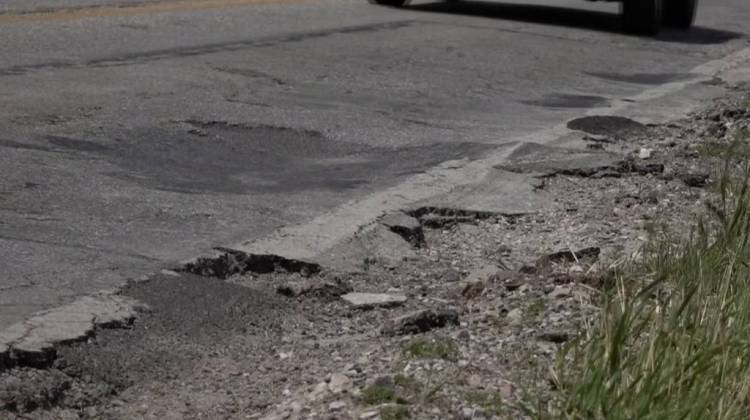
Dan Thystrup has made paddle boats for 25 years. He is creating a new, more affordable paddle boat for his collection and hopes to sell it to individuals instead of his regular business customers.
Photo courtesy of AdventureglassDan Thystrup is the owner of Adventureglass and has been making paddle boats for about 25 years. They’re used in recreational parks all over the world.
“We have some in London, England, and in Malaysia. Philadelphia Zoo has had our boats for many, many years. They have a bunch of our swans,” says Thystrup.
Earlier this year, he expected to be on track for one of his most profitable years with completed orders ready to ship out this spring. Now, those boats just sit in his Fort Wayne shop.
“All these, let’s call them amusement places or recreational things, they are staying closed longer than the regular factories and stores and things like that,” says Thystrup. “So they are suffering big time. And because they are suffering, they can't do business with us.”
Businesses in Indiana lost billions of dollars to the pandemic. Federal support helped, but for many small businesses, owners say it isn't nearly enough. With tight profit margins even before COVID-19, some are worried for the future of their businesses.
Thystrup did manage to get a federal Paycheck Protection Program (PPP) loan through the Small Business Administration (SBA). Congress created the program to help ease the economic pain of the pandemic. Even with the extra money, he still had to furlough one of his five employees.
Barbara Quandt hears stories like Thystrup’s regularly in her job as the Indiana state director for the National Federation of Independent Business. Quandt says getting the loans created to help small business owners has been a challenge.
“The rollout was a complete disaster, and with small businesses waiting weeks, over months to actually receive funding, and some now have been told they're getting it but they still don't have the money available to them,” says Quandt. “And so that that leads to desperation in a manner that really can't be adequately described.”
Join the conversation and sign up for the Indiana 2020 Two-Way. Text "elections" to 73224. Your comments and questions in response to our weekly text help us find the answers you need on COVID-19 and the 2020 election.
Quandt says even without a federal loan, some businesses continued to pay workers.
“That has put them in some cases even further in the hole and some aren't going to survive this,” she says.
And that affects a lot of workers. IUPUI Economics Department Chair Steve Russell says roughly half of all workers in the country are employed by small businesses. With that high number, he says it was surprising how limited the federal funds were at first.
“So if they really were going to hit a very high percentage of those businesses, you would think it would take a ton of money, maybe more money than they maybe more money than they've allocated,” he says.
While applications for loans under the PPP were submitted to the SBA for approval, banks have worked around the clock to get all the forms turned in. From the start, the roll out was a bit of a mess with the federal government constantly releasing new guidance and clarifications.
“I would get up every day at the, you know, 5 a.m. and read to see what the new rules were for the day. And everything turned out okay,” says Steve Kidwell, the president and CEO of Riddell National Bank in Brazil, Indiana. “But, you know, just that, not knowing from day to day what the new rule was going to be is not something we're used to working with.”
He says his bank was able to help local businesses, but now it’s waiting on the federal government to forgive the loans.
“People think that, even our borrowers, they think the government came and handed us this money that we're handing to them, that's not the case at all,” says Kidwell. “This is actually the bank's money that they're loaning out at 1 percent.”
The federal government will forgive loans if businesses keep employees on payroll for a set time and meet other requirements. Kidwell warns if the loans are not forgiven soon it could cause some banks to close themselves.
Back in his shop, Thystrup is creating a new, more affordable paddle boat for his collection and hopes to sell it to individuals instead of his regular business customers.
“Before we have never done much of that,” he says. “That's what we're hoping will take care of it, help us to go through this period.”
But if the economic slowdown continues and his customers are unable to pay him for the boats sitting in his shop Thysrup says, “We might not be around if it stays for too long.”
Contact Samantha at shorton@wfyi.org or follow her on Twitter at @SamHorton5.
 DONATE
DONATE






 Support WFYI. We can't do it without you.
Support WFYI. We can't do it without you.